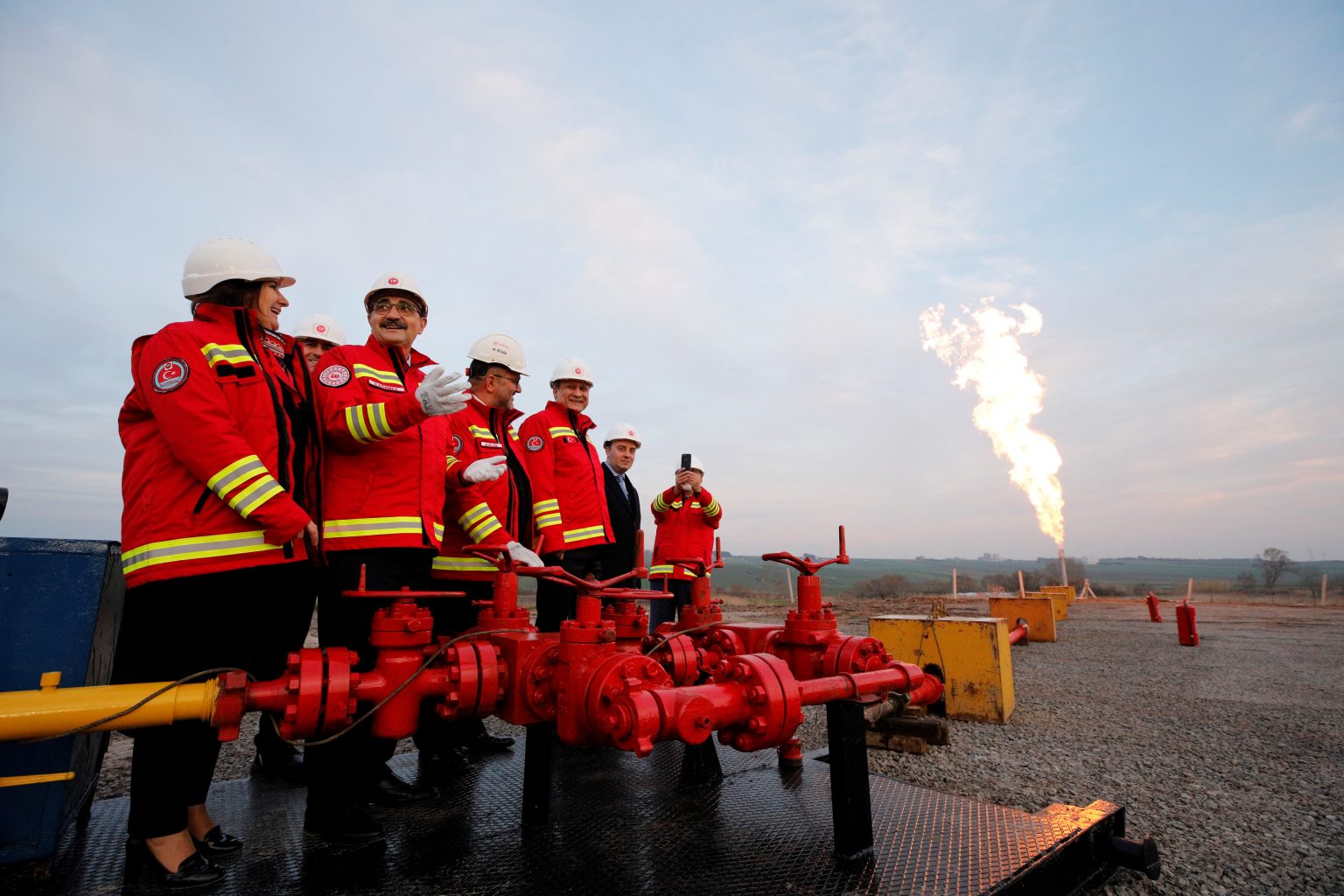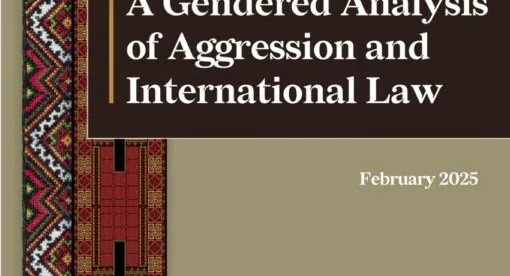With the announcement of a large natural gas find in the Black Sea, Turkey is looking to become a power player in the energy sphere. But the discovery is nowhere near large enough for the country to become energy independent, and domestic and international constraints on Ankara mean it likely will not stop its aggressive foreign policy moves in the near future.
Energy issues lie at the heart of Turkey’s aggressive quest for great power status throughout the Eastern Mediterranean and the Levant. This fact makes President Recep Tayyip Erdogan’s Aug. 21 announcement of the biggest natural gas find in Turkish history highly important. In his announcement, Erdogan said the find constituted 320 billion cubic meters (bcm) and is part of a much larger source. Turkey says it expects to make gas from the find available to the market in 2023.
Despite the hype, this discovery on its own does not resolve Turkey’s gas issues. Indeed, it is by no means clear that this amount of gas can be turned over to the market, let alone that abundant linked reserves are sitting in the Black Sea waiting for Turkey to discover them. Neither is it obvious that this discovery will moderate Turkey’s aggressive behavior in the Eastern Mediterranean.
The Gas Find in Context
With his customary grandiosity, Erdogan is already saying that Turkey will not rest until it finds and exploits that larger reserve of gas and marketizes it so that Turkey can become a net exporter. This discovery and the potential that there may be more, taken in the overall context of Turkey’s energy issues and its quest for regional great power, could mark an important new chapter in Turkish policies. But this can only occur if indeed more gas is found and Turkey makes major energy policy moves to further reduce its dependence on Russian gas.
Neither is this find in and of itself a game changer. The 320 bcm find amounts to less than half of the 690 bcm reserves in Ohio, the eighth-richest natural gas state in the United States. In other words, this find hardly makes Turkey competitive, nor will it alone greatly reduce its import burden unless much more gas is found and exploited.
There are also serious technical obstacles in the way of bringing this gas to market by 2023. Andrew Sherman, the principal analyst at Wood Mackenzie, told Deutsche Welle that Turkey’s projected start-up date appears very ambitious as it would require a “world-class and near-unprecedented project execution.” Sherman also observed that Turkey has little experience with deep-sea gas production and that to confirm resource estimates more wells must first be appraised in order to better understand this field’s ecology.
While this gas find could improve Turkey’s negotiating position with its suppliers, if it is to be an “economic miracle” Turkey must make rational economic decisions concerning the price of extracting and refining this gas. Analysts contend that it might take Turkey a decade to extract Black Sea gas and that Turkey’s state-run gas company, TPAO, will probably have to form a joint-venture company with a foreign partner to maximize its returns from this field. Ankara may insist on going it alone, especially given its current aggressive foreign policy stance, but an international tender may still be needed to build a pipeline to bring the natural gas to the shore.
Turkey’s cratering economy, currency, and balance of payments would greatly benefit from any serious diminution of its annual $41 billion energy import bill for gas, largely from Azerbaijan and Russia, but this find will not do much more than moderately improve Turkey’s bargaining position unless much larger reserves are found along with it.
Regional Tensions
This gas find also will do nothing to reduce the high tension generated by Turkey’s aggressive interventions in the Eastern Mediterranean. Turkey has seized Cypriot gas, threatened Greece and France, and forcefully intervened in Libya.
Since Turkey has not signed the U.N. Commission Law of the Sea Treaty, it has no recognized Exclusive Economic Zone, nor does it recognize either Cyprus’ or Greece’s claims. Turkish policy is driven by its anxieties about Cyprus becoming a major gas producer and leaving Turkish Cyprus behind; its anger at being excluded from the Eastern Mediterranean Gas Forum comprising Greece, Cyprus, Egypt, and Israel; and growing domestic pressures upon Erdogan and across Turkish politics for Turkey to play the role of a regional great power. These factors, and the idea that the quest for foreign greatness will induce Turks to disregard their precarious economic state, prompted Erdogan to seize part of Cyprus’ Exclusive Economic Zone and expand energy exploration there.
Erdogan has antagonized all the members of the Eastern Mediterranean Gas Forum to the point where there is a genuine threat of hostilities with Greece, a fellow NATO ally. Apart from seizing and exploring part of Cyprus’ territorial waters, Erdogan has opened up contacts with Hamas and hosted two of its leaders to antagonize Israel. In November 2019, he signed a treaty with the desperate government of Libya, whereby the latter acknowledged Turkey’s Eastern Mediterranean maritime claims that infringe on Cyprus’ waters and claim Turkish sovereignty over waters extending to most of Greece’s Aegean islands, including Crete.
He then further antagonized Egypt, which has viewed Erdogan with animosity for his support of Cairo’s previous Islamist government and other Islamist movements, by sending troops to Libya to oppose Egypt’s favored leader in Libya’s civil war, Gen. Khalifa Haftar. More recently, Erdogan launched the Turkish navy to threaten the Greek navy, prompting France to send capital ships to support Greece, thus precipitating a major crisis in NATO.
Turkish leaders have long insisted that Turkey is destined to be the hub for all gas and oil from the Middle East, Caucasus, and Central Asia, and they have aligned this vision to a mounting domestic nationalist demand that Turkey play a great power role in the Levant. The inflammatory rhetoric Erdogan uses adds fuel to this fire and has brought the Eastern Mediterranean to an impasse. The new discoveries will therefore neither alleviate Turkey’s fundamental energy position nor lead to a reduction in the pressure for aggressive great power muscle-flexing. Indeed, it may even add to Ankara’s problems.
For example, while there currently is no sign that Turkey’s find will put it into conflict with its Black Sea neighbors, Ankara’s aggressive foreign policy stance means rising tensions with Russia, Ukraine, Romania, and Bulgaria, cannot be ruled out. Because of the issues above, then, Black Sea gas could add to the tensions in the Eastern Mediterranean rather than easing them. Since the recent find’s ultimate quantity, cost, and value remain to be determined and, in any case, can do little or nothing for Turkey till 2023 at the earliest, Turkey’s energy ambitions in the Levant will probably increase. And barring any fundamental change in Turkish politics, Turkey’s rhetoric will also grow commensurately with the urgency of achieving foreign policy successes and viable energy supplies.
Finding more energy that Turkey could then market as its own is essential to meet high demand and reduce the burden of its annual import bill, and aggressive rhetoric is needed to shore up Erdogan’s flagging domestic support. This consideration provides the United States and the European Union, notably Germany, with an opening to negotiate a solution to the energy problems around Cyprus and Greece. This would probably mean a pipeline from an Eastern Mediterranean Gas Forum source to Turkey and then to Greece, from where it could branch out to Europe. It would also probably entail a serious negotiation concerning Cyprus’ final status along with that of the Turkish Republic of Northern Cyprus. Such a political resolution is needed because despite the announcement of the new gas find, no economic miracle is in sight for Turkey. However, absent a more enlightened negotiating approach, Turkey will likely continue to move aggressively against all of its potential interlocutors and partners. If that happens, energy might become the least of Turkey’s problems.
Dr. Stephen Blank is a Senior Fellow at the Foreign Policy Research Institute (FPRI). Dr. Blank is also an independent consultant working with various U.S. government and corporate clients and a former professor at the U.S. Army War College. Blank has authored hundreds of foreign policy-related articles, white papers, and monographs – specifically focused on the geopolitics and geostrategy of the former Soviet Union, Russia, and Eurasia.
The views expressed in this article are those of the author and not an official policy or position of the Newlines Institute.






